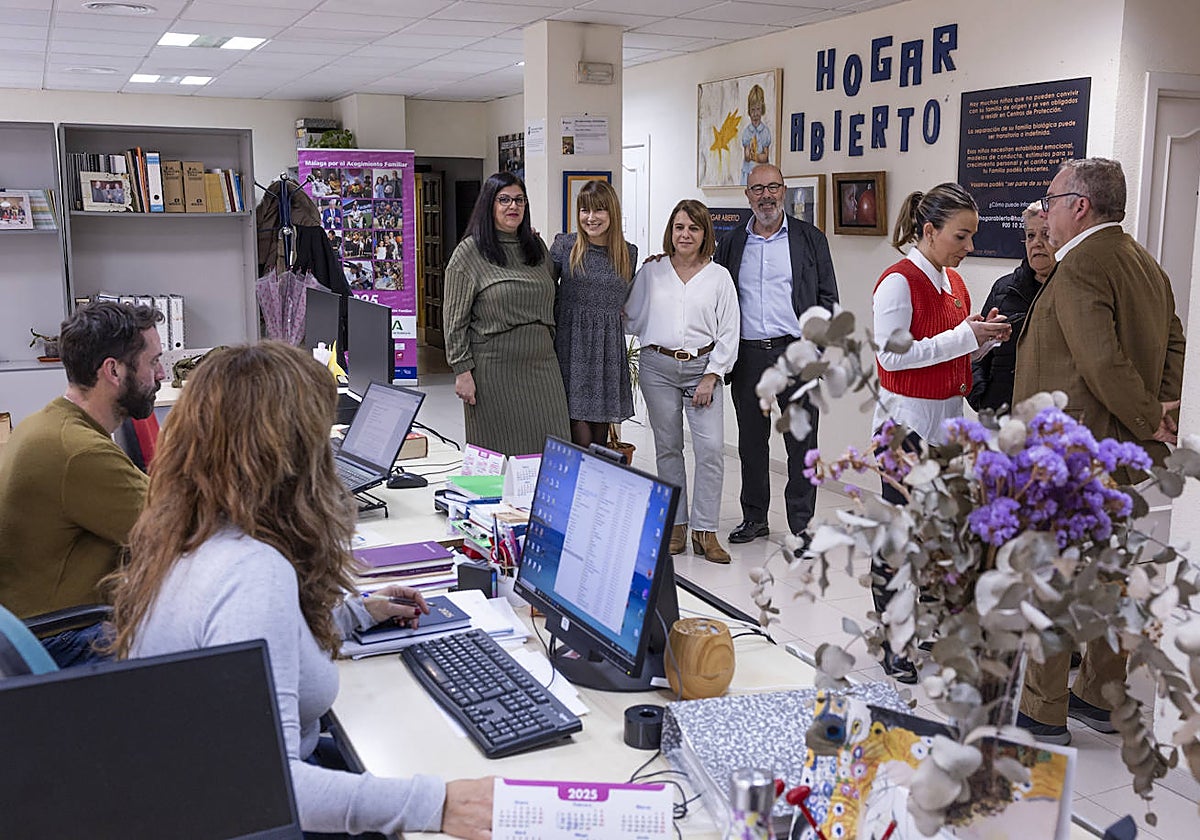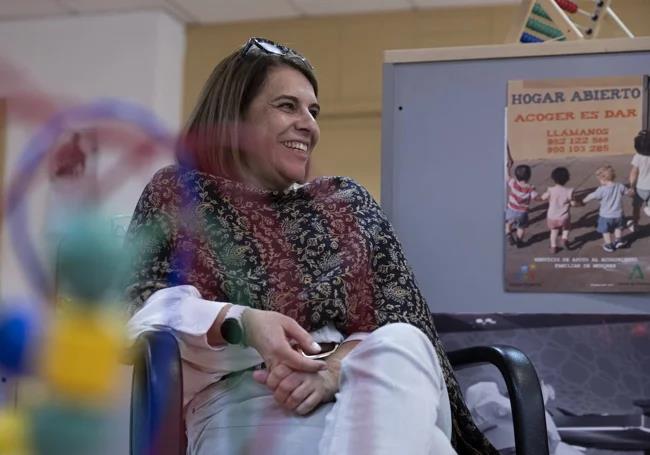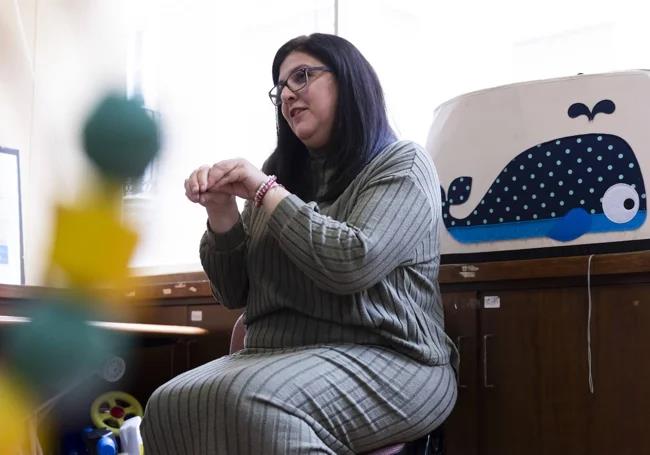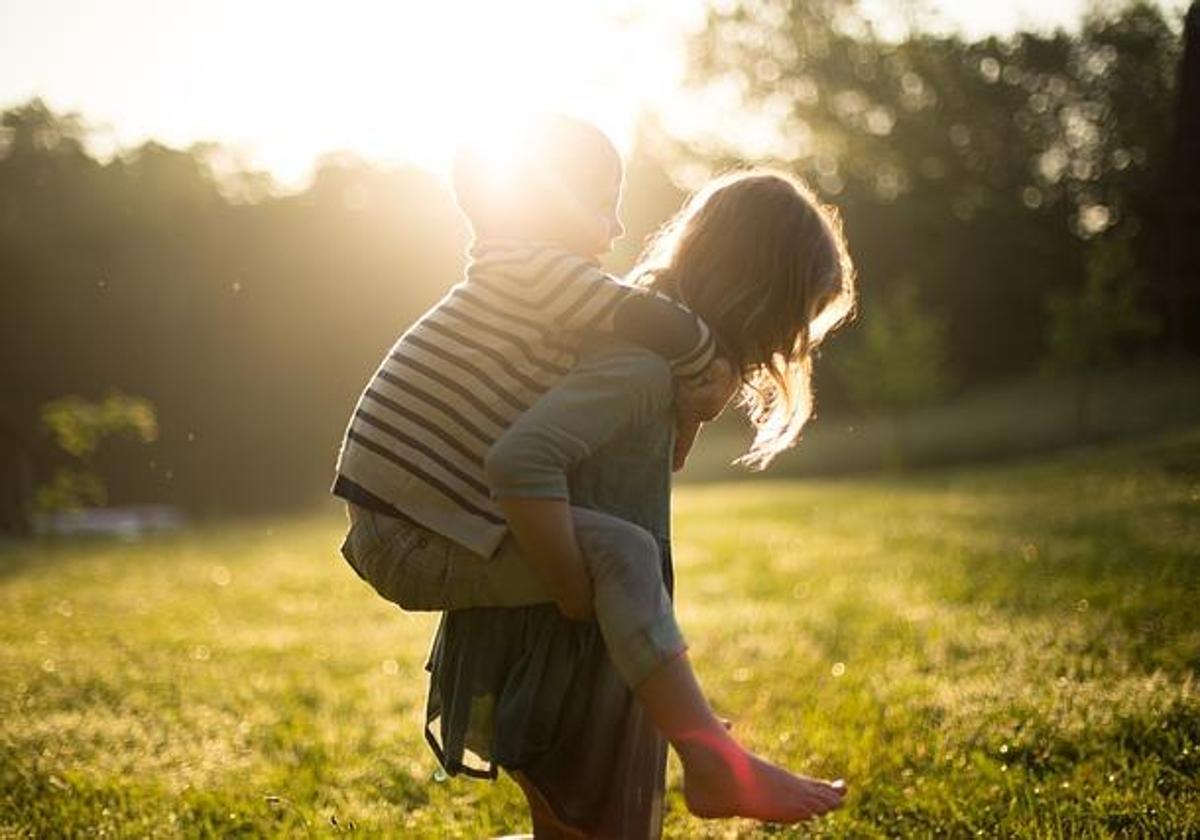Fifty families urgently needed to foster children in Malaga province
The Andalusian regional government and various support associations are looking for homes for some of 940 minors currently in care
The Junta de Andalucía is urgently looking for 50 homes for foster children currently in its care. According to Ruth Sarabia, Malaga's spokesperson for social inclusion, youth, families and equality for the regional government. There are currently around 940 minors in care in the province, although the figure changes every week. "We have never handled such high numbers in Malaga," she says, adding, "We need at least 50 foster families in Malaga to deal with this difficult situation we are going through."
Of the minors currently in care, half are with foster families and the other half in centres. "We have a lot of 12-year-olds who are in centres and who should not be growing up there. We are not saying this because they are not well cared for, but because they need a family environment to grow up and feel loved. That is why we are calling on the people of Malaga to become foster families for these minors," explains Sarabia.

Zoom

This "tough situation" is something that also worries associations specialising in foster care, such as the Hogar Abierto (open home) foundation, which invited Sarabia to a meeting with SUR to add her support and reflect on the reality of children in care and foster families in the province. "We need new families to be able to attend to all the children who come to us. We first interview them to determine their suitability, then they undergo several months of training and receive help from us at all times once they have taken in one of the children," explains the president of Hogar Abierto, Alberto Peláez.
These children arrive after experiencing traumatic situations such as violence between parents or even with themselves, accidents resulting in the loss of their entire family or an environment that is not favourable for their growth. "They even talk among themselves about their personal experiences, how their parents beat each other or how they used knives to attack each other."
Priority to children under 12 years of age
The profiles of the children have been changing in recent years, according to Ruth Sarabia, "They are no longer just broken families, but also children who have generated behavioural patterns that have caused parents to come to us giving them up because they can't take it anymore". In addition, the Junta stresses that they want to give priority to children under 12 and six years of age. According to the latest data provided by the Andalusian government, there are around 65 children under the age of six in need of a foster family in the region.
Analysing the situation in Malaga province, Sarabia says there has been a "change of structure" in society which is reflected in the types of foster care. "We see more generosity in people who have no links with the minors. Now there are grandparents, uncles, aunts, uncles and cousins who tell us no, that they don't want to take care of the child," she explains.
This means that extended fostering, which is the term used for fostering by some members of the family, is becoming less and less common, and therefore reaffirms even more the current need for families willing to take in children.

Zoom

María Jesús Cochard has taken in eight children through Hogar Abierto since 2017. She herself was going through a difficult time when the first foster child arrived. Cochard was recovering from breast cancer that year and her daughter had been a victim of gender violence. "This new opportunity gave us life and has given us a different way of looking at our daily life. In my family we felt as if a light had arrived at home, it gave everything a twist," she explains emotionally.
She is now in the process of adopting the first foster child she took in. "I remember she was three years old when she arrived with us she was handed over to me asleep. My partner, my two biological children and I have devoted ourselves to her and she has taught us many things; our scale of values as a family has changed since we started collaborating with foster care. We have learned to live better and to enjoy every detail to the full," says Cochard.
"What is most satisfying"
She says fostering is "the best thing we have done in our lives", adding, "In my life I have helped many people, I have worked, I have done many things, but what I find most satisfying is being able to help children who need it so much."
The arrival of the first foster child led to a very special relationship with her biological daughter: "She has now normalised her life after everything that happened and makes an incredible tandem with her sister. Her arrival at home was what got her out of bed, made her laugh again and has also taught her to learn to take care of others and herself."
"Our scale of values as a family has changed since we have been fostering; it's the best thing we have ever done in our lives."
In the eight years Cochard and her partner have been foster carers, she and her family have experienced totally different situations with the eight children who have passed through their home: from some who were more nervous to others who had anger issues or found it difficult to talk and relate to others because of the traumas they had from their past experiences.
"For each child you have to have a different strategy. One of them moved all my emotions. When she came home she didn't know how to relate, she didn't interact with anyone, her face was always stiff and she even gave the impression that she had little mobility. But in the end she changed. When that happens and she says 'Mummy, I love you'. Well, imagine."
"There are children who have missed a juice or a milkshake. But for them to have missed a hug? For them to come and tell you that nobody loved them? That's very hard," says Cochard, who also appreciates what she gets back from the children: "They come to Hogar Abierto directly from the police or after having lived through traumatic situations and, suddenly, you save them and they feel safe with you; they give you their hand and all the innocence that is in them."
When she has to choose something that being a foster family has taught her, she agrees with María de la Sierra Priego, the other mother who shared her experiences with SUR for this report: "They have taught me what unconditional love is."

Zoom

María de la Sierra Priego saw a programme on television about children in care and couldn't stop thinking about it. She spent a year looking for information and eventually decided to call Hogar Abierto. That was in 2017 and has worked with them since then. "At first it's scary, that's inevitable, because you don't know what you're getting into. But now I can't imagine my life without being a foster family. We live for them and our children accompany us in our work," she explains.
She goes on to say that although it is sad when the children have to leave, the experience is very rewarding. "The day to day life of the children is valued. We know that they come and most likely they will leave, but you have to take the good side of everything and think that the work you do, for however long, is for the good of a child who at that moment is helpless and needs the help of a family to grow up in a normal environment," she reflects.
Her husband and own children supported the decision she made in 2017 and now they are part of a great team that has taken in eight foster children. "For us it is wonderful, thanks to them we know how much more we value everything we have. Nobody can imagine my house without foster children, they give us a lot of life and teach us many things. My biological children adapt very well to them," says De la Sierra Priego.
They are also part of the specialised foster families, who try to adjust to the specific needs and difficulties of the children in care. "When Hogar Abierto called me and explained that they had a three-year-old child with special needs I didn't even think about it. But first I had to ask my family, so as soon as I hung up, I asked them and they said yes, we were all on the same page," she explains.
The hardest moments
"If you think about yourself you will never do it, you have to think about the good you are doing for the child. You have to learn to take care of them and bond with them, but face the fact that there is a big change when they return to their definitive family, even though they will continue to have a place and a place where they are cared for," says De la Sierra Priego, who admits that her family has gone through some difficult times after some of the children returned to their families. "This is very nice and very hard at the same time: "My daughter, in one of the cases, didn't understand how her new little brother was leaving. It's not easy to explain when they get attached to them and make them part of the family, but in the end they understand."
"It's unbelievable that there are children who don't even have a plate of food or someone to love them. It's very hard".
María de la Sierra also recalls some difficult situations in her experiences with foster children: "One of them insisted every night on sleeping on the floor. He was barely two and a half years old and did not understand how there was a cot prepared for him, he did not know what it was like to sleep on a little bed. He was also self-harming and had very violent behaviour, but to see the progress he has made living with us is incredible. Now he plays sport, he plays football and we go with him every weekend for matches. He also has his therapy sessions and he is making progress in his behaviour. He had a hard time with his biological family and we have to understand that any change takes time. We are working on it, on improving his life and helping him to have a better future," she explains.
The daily life of María de la Sierra and her family is undoubtedly different now, but much better. "I still find it unbelievable that there are children who have nothing, not even a plate of food or someone to love them. It's very hard," she says. But she also recognises that the children "have taught me to love unconditionally".

